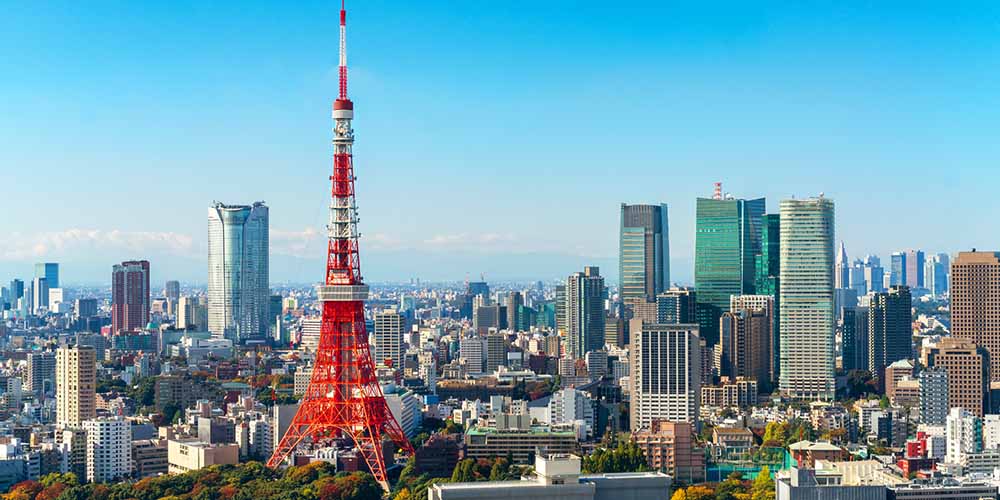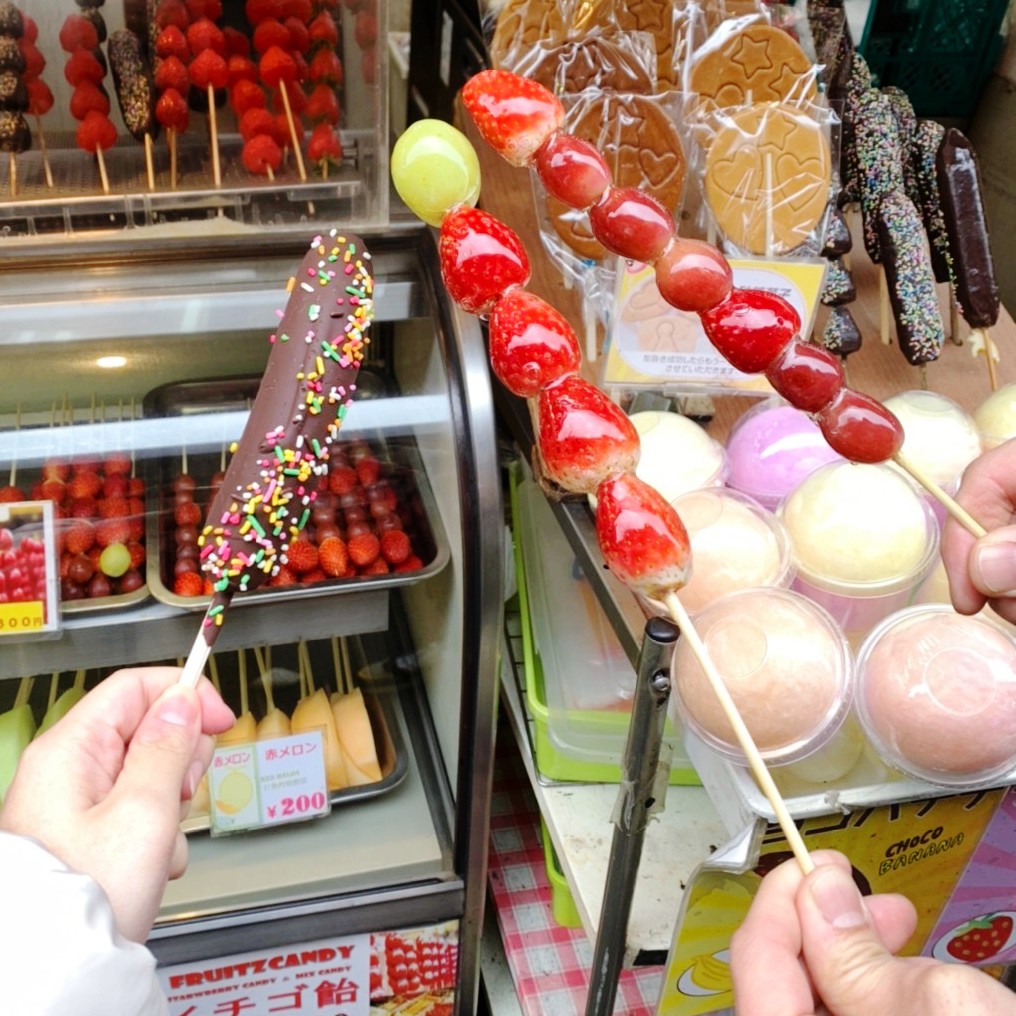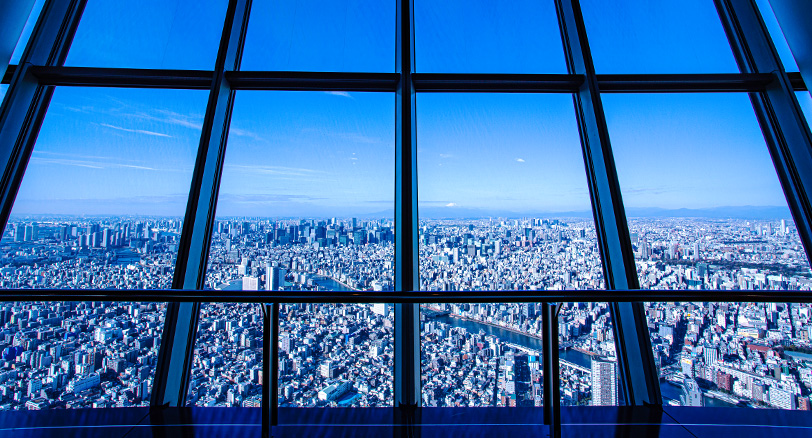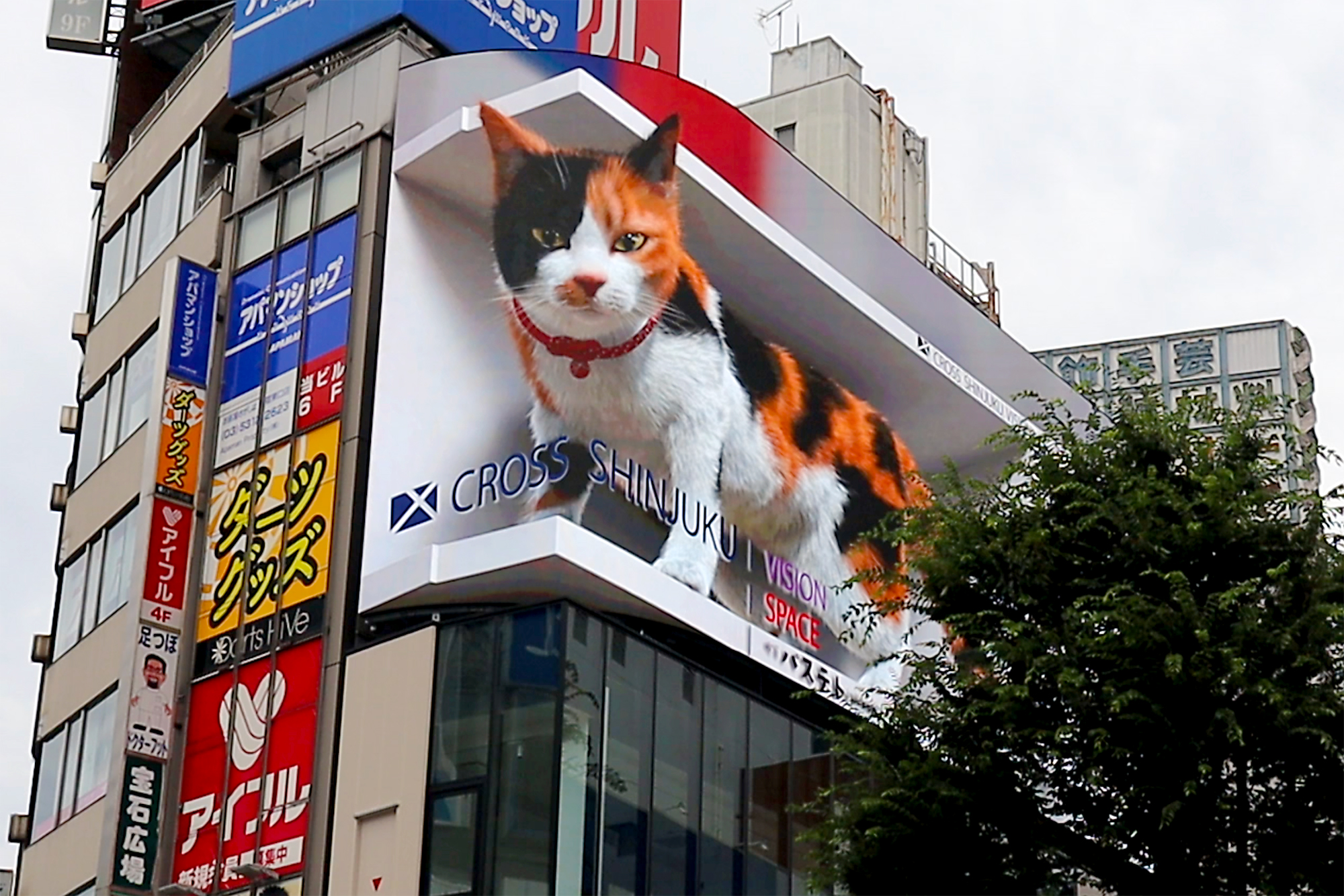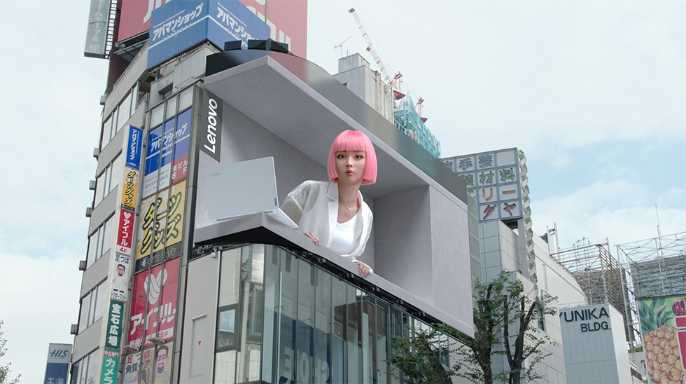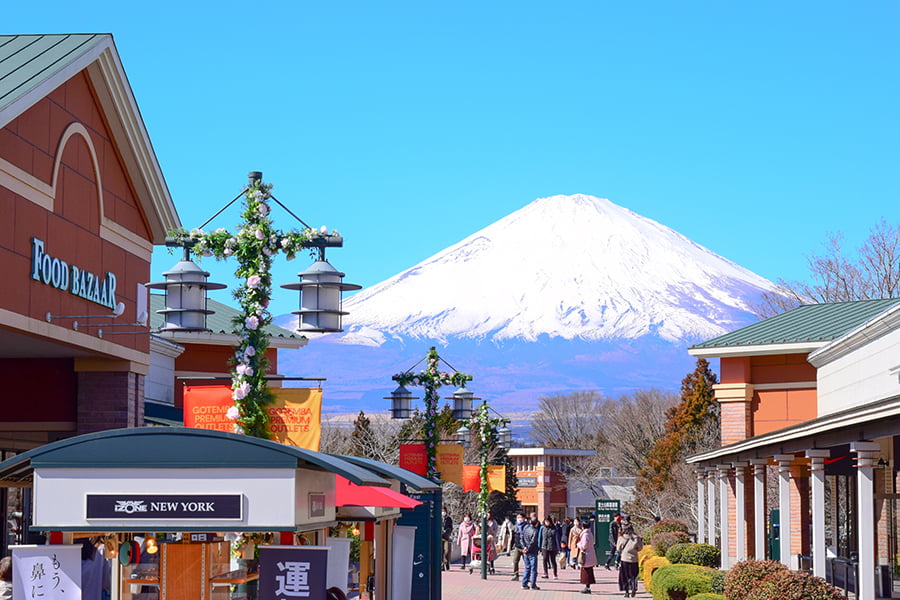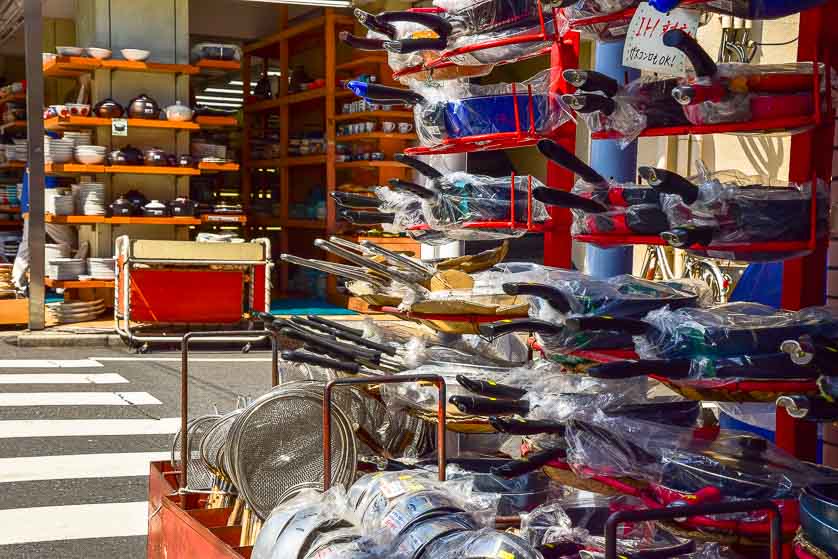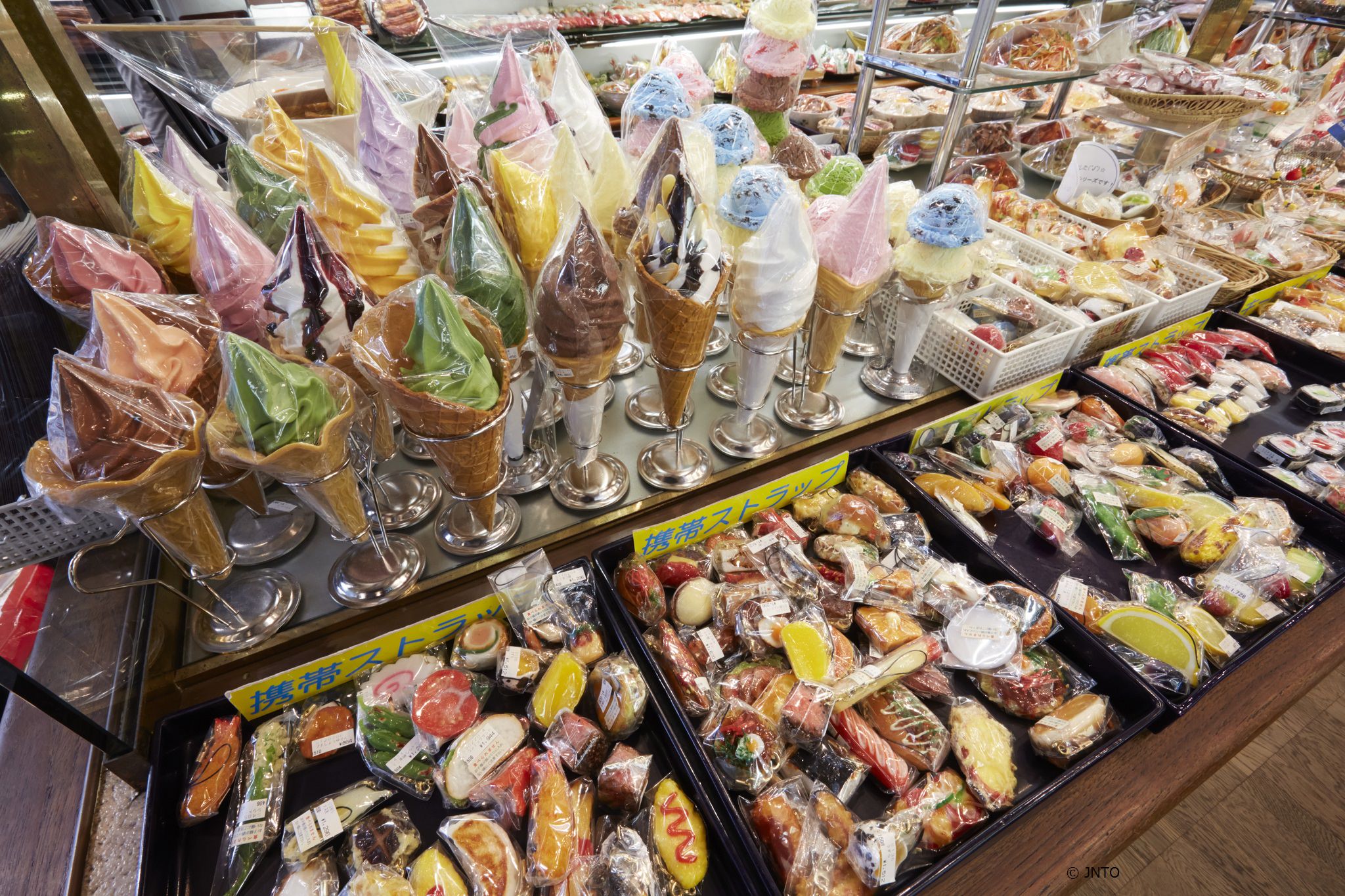- Visit Tokyo
- Team Lab Planets TOKYO
- Sibuya Scramble Crossing
- Sibuya 109
- Harajuku
- Tokyo Tower
- Ueno Ame-Yoko
- Asakusa ー Nakamise
- Tokyo Dome City
- Tokyo Sky Tree
- Cross Shinjuku Vision
- Gotenba Premium Outlet
- Owakudani
- Oshino Hakkai
- Kamakura
- Mt.Takao
- Kappabashi Street
- Imperial Palace
- Lake Kawaguchi
- Odaiba
- Snow Monkey Park (Nagano Pref.)
- Dine In Tokyo
- Tendon
- Burger Steak
- Honkatory (Curry Rice)
- Yabusoba (Buckweat noodles)
- (kin Suhi) Real Sushi Restaurant
- Hinadoriyama
- Tonkatsu
- Sea Castle (German Food)
- Komagata Dozeu (weatherfish)
- Mouko Tanmen Nakamoto
- Ramen Taisho-Ken
- Funabashiya-Honten
- Morino Butchers
- Kameido Gyoza
- Bombei
- Koishi-Tai (Ramen)
- Isegen
- Epanoui Frensh Auberge
- Mandara (Indian fine foods)
- Nail Restaurant (Indian foods)
- Marugame Seimen
Visit Tokyo

Team Lab Planets TOKYO
“DMM.Planets Art by teamLab” held in Odaiba in 2016 has been scaled up and will open in Shin-Toyosu from July 7, 2018 until the end of 2020. It is composed of a total of eight artworks by teamLab, centered on four huge work spaces. By immersing the entire body with other people in these massive “Body Immersive” artworks, the boundary between the body and the artwork dissolves, the boundaries between the self, others, and the world become something continuous, and we explore a new relationship without boundaries between ourselves and the world.
Sibuya Scramble Crossing
Shibuya Crossing is often featured in movies and television shows which take place in Tokyo, such as Lost in Translation,[6] The Fast and the Furious: Tokyo Drift, Alice in Borderland, and Resident Evil: Afterlife, as well as on domestic and international news broadcasts. The iconic video screen featured in the above movies, in particular Lost in Translation with its ‘walking dinosaur’ scene, was taken down for a period of time and replaced with static advertising, although it resumed operation in July 2013.
Sibuya 109
The building, located just across the street from Shibuya Station, opened in April 1979. The architect was Minoru Takeyama. Tokyu, the building’s operator, designed the building as a “Fashion Community” containing small retail stores targeting the early-30s female consumer. Tokyu intended the store to compete with Seibu Department Stores, which was making inroads into the Shibuya area.
Harajuku
Harajuku is known internationally as a center of Japanese youth culture and fashion. Shopping and dining options include many small, youth-oriented, independent boutiques and cafés, but the neighborhood also attracts many larger international chain stores with high-end luxury merchandisers extensively represented along Omotesando.
Tokyo Tower
Since its completion in 1958, Tokyo Tower has become a prominent landmark in the city, and frequently appears in media set in Tokyo.
Ueno Ame-Yoko
Asakusa ー Nakamise
Sensō-jiis an ancient Buddhist temple located in Asakusa, Tokyo, Japan. It is Tokyo’s oldest temple, and one of its most significant. Formerly associated with the Tendai sect of Buddhism, it became independent after World War II. It is dedicated to Kannon, the bodhisattva of compassion, and is the most widely visited religious site in the world with over 30 million visitors annually.Adjacent to the temple is a five-story pagoda, the Asakusa Shinto shrine,as well as many shops with traditional goods in the Nakamise-dōri.
Tokyo Dome City
Tokyo Dome City (東京ドームシティ, Tōkyō Dōmu Shiti), referred to as Big Egg City before January 1, 2000, is an entertainment complex in Bunkyo, Tokyo, Japan. It also includes the world’s largest roofed baseball stadium, known as Tokyo Dome (AKA “Big Egg”); an amusement park known as Tokyo Dome City Attractions (formerly Kōrakuen Yūenchi); and Korakuen Hall. In May 2003, a spa resort known as LaQua opened for business near Tokyo Dome City Attractions. It also hosts character shows for Toei Company’s Toei Superheroes, including the Kamen Rider and Super Sentai series (the Tokyo Dome Corporation is the Super Sentai series’ main sponsor).
The Tokyo Dome City contains the Tokyo Dome Hotel, a 43-story hotel that is easy to spot from the street and from the Tokyo Subway Suidobashi Station, which is only two blocks away.
Tokyo Sky Tree
Tokyo Skytree (東京スカイツリー, Tōkyō Sukaitsurī) is a broadcasting and observation tower in Sumida, Tokyo. It became the tallest structure in Japan in 2010 and reached its full height of 634 meters (2,080 ft) in March 2011, making it the tallest tower in the world, displacing the Canton Tower, and the third tallest structure in the world after the Merdeka 118 (678.9 m or 2,227 ft) and the Burj Khalifa (829.8 m or 2,722 ft). It is also the tallest freestanding structure in the OECD, the G20 and G7 countries.
Cross Shinjuku Vision
Agigantic 3D cat has appeared on a billboard in Tokyo, where it looms playfully over one of the city’s busiest railway stations.
Shown between advertisements, the hyper-realistic feline comes to life on a 1,664-square-foot curved LED screen in the Shinjuku district. The 4K-resolution display shows the cat walking around high above the Japanese capital as it audibly meows.
Gotenba Premium Outlet
The Gotemba Premium Outlets (Japanese: 御殿場プレミアム・アウトレット, Hepburn: Gotemba Puremiamu Autoretto) is an outlet mall located in Gotemba, Shizuoka, Japan, near Mount Fuji. It was opened on July 13, 2000, and contains over 200 stores. The mall is managed by Mitsubishi Estate Simon Co., Ltd., a joint venture between Mitsubishi Estate and Simon Property Group.
Owakudani
Ōwakudani (大涌谷, lit. “Great Boiling Valley”) is a volcanic valley with active sulphur vents and hot springs in Hakone, Kanagawa Prefecture, Japan. It was created around 3,000 years ago, as a result of the explosion of the Hakone volcano.
It is a popular tourist site for its scenic views, volcanic activity, and kuro-tamago (黒卵, lit. “black egg”) — a local specialty of eggs hard-boiled in the hot springs. The eggs turn black and smell slightly sulphuric; eating one is said to add seven years to your life.
Oshino Hakkai
Oshino Hakkai (Japanese: 忍野八海, literally Eight Seas in Oshino) are the eight springs found in Oshino, Yamanashi, Japan. The aquifer water from Mount Fuji comes out to the ground to form these springs. They are a Natural monument of Japan, part of the Mount Fuji World Heritage Site, and one of Yamanashi Prefecture’s important tourist attractions.
Kamakura
Kamakura has an estimated population of 172,929 (1 September 2020) and a population density of 4,359 persons per km² over the total area of 39.67 km2 (15.32 sq mi). Kamakura was designated as a city on 3 November 1939.
Kamakura was the de facto capital of Japan from 1185 to 1333 as the seat of the Kamakura shogunate, and became the nation’s most populous settlement during the Kamakura period. Kamakura is a popular domestic tourist destination in Japan as a coastal city with a high number of seasonal festivals, as well as ancient Buddhist and Shinto shrines and temples.
Mt.Takao

Kappabashi Street
Kappabashi-dori, also known just as Kappabashi (Japanese: 合羽橋) or Kitchen Town, is a street in Tokyo between Ueno and Asakusa which is almost entirely populated with shops supplying the restaurant trade. These shops sell everything from knives and other kitchen utensils, mass-produced crockery, restaurant furniture, ovens, and decorations, through to esoteric items such as the plastic display food (sampuru, derived from English sample) found outside Japanese restaurants. The street is also an off-beat tourist destination.
Imperial Palace
The Tokyo Imperial Palace (皇居, Kōkyo, literally ‘Imperial Residence’) is the main residence of the Emperor of Japan. It is a large park-like area located in the Chiyoda district of the Chiyoda ward of Tokyo and contains several buildings including the Fukiage Palace (吹上御所, Fukiage gosho) where the Emperor has his living quarters, the main palace (宮殿, Kyūden) where various ceremonies and receptions take place, some residences of the Imperial Family, an archive, museums and administrative offices.
Lake Kawaguchi
Odaiba
Snow Monkey Park (Nagano Pref.)
This place is in Nagano Prefecture and needs to stay at least 1 night there.


Dine In Tokyo

Tendon
Burger Steak
Honkatory (Curry Rice)
Yabusoba (Buckweat noodles)
(kin Suhi) Real Sushi Restaurant
Hinadoriyama
Tonkatsu
Sea Castle (German Food)
Komagata Dozeu (weatherfish)
Mouko Tanmen Nakamoto
Ramen Taisho-Ken
Funabashiya-Honten
Morino Butchers
Kameido Gyoza
Bombei
Koishi-Tai (Ramen)
Isegen
Epanoui Frensh Auberge
Mandara (Indian fine foods)
Nail Restaurant (Indian foods)
(first indian restaurant in Japan)









